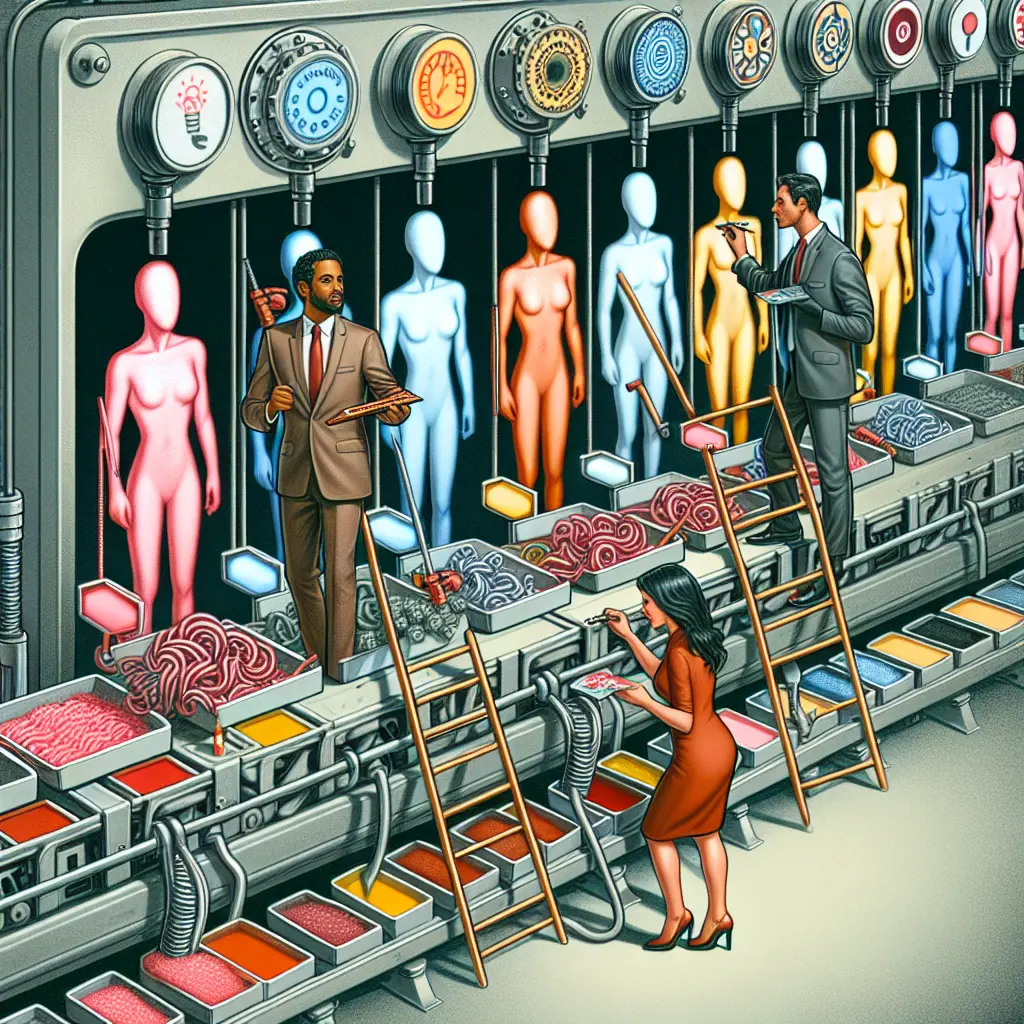
Introduction
In today's competitive job market, standing out from the crowd is more crucial than ever. Personal branding has emerged as a powerful tool for career advancement, enabling professionals to differentiate themselves and unlock new career opportunities. Crafting a compelling personal brand strategy is key to professional growth, providing the foundation for career development and progression. This introduction explores the transformative power of personal branding, offering insights into how it can enhance career opportunities and facilitate job market differentiation.
In today's dynamic job market, the ability to differentiate oneself through personal branding is more essential than ever. This section delves into how professionals can leverage personal branding for career advancement, drawing insights from recent industry developments and integrating effective strategies for success.
Understanding the Core of Personal Branding
Personal branding is not just about visibility; it's about establishing a unique professional identity that aligns with your career aspirations. A strong personal brand can serve as a cornerstone for career development and progression. It enhances career opportunities by creating a distinctive presence in the job market, differentiating you from competitors.
Recent trends underscore the importance of visual identity in personal branding. For instance, Thig Studio's modern yet timeless branding system, crafted by Eunsun Park, exemplifies how a well-defined visual identity can resonate with audiences and enhance brand perception. By adopting such innovative approaches, professionals can ensure their personal brand reflects their unique strengths and aspirations.
Crafting a Personal Brand Strategy
A well-structured personal brand strategy involves several key components:
Defining Your Unique Value Proposition: Identify what makes you stand out in your field. This could be a specific skill, experience, or perspective that you bring to the table.
Consistent Messaging: Ensure that your online and offline presence communicates your personal brand consistently. This includes your social media profiles, resume, and professional interactions.
Visual Identity: Invest in a cohesive visual identity that represents your brand. This includes your profile picture, logo (if applicable), and any other visual elements that you use to represent yourself professionally.
The branding system used by Immersy, an English school in Brazil, serves as a compelling example of how a strategic visual identity can support brand goals. Revelatio Studio's design process involved crafting a vibrant and engaging brand identity that captured the school's innovative spirit.
Personal Branding Techniques and Tips
Effective personal branding requires the implementation of targeted techniques. Here are some tips to enhance your career opportunities:
Leverage LinkedIn Ads: Use LinkedIn ads strategically to promote your content and increase visibility among key industry players. As explored in recent studies, LinkedIn ads can significantly boost the reach of personal profiles, fostering meaningful connections with potential employers or collaborators.
Utilize AI Tools for Branding: With AI becoming an integral part of modern branding strategies, tools like ChatGPT can help craft personalized content that aligns with your brand voice. Explore prompts designed to position you as an authority in your field.
Network Strategically: Networking remains a crucial component of personal branding. By attending events like San Diego Comic-Con, professionals can engage with like-minded individuals and stay abreast of industry trends. Such platforms offer opportunities to showcase your personal brand and foster career success.
Overcoming Challenges in Personal Branding
While personal branding offers numerous benefits, it also presents challenges that must be addressed:
Addressing Résumé Gaps
Career progression can be hampered by gaps in employment history. However, these gaps can be mitigated by effectively communicating the reasons behind them on your résumé. It is best to acknowledge the disruption and refocus on how you've grown during that period.
Avoiding Common Branding Mistakes
As highlighted in discussions with ad executive Leslie Zane, one common pitfall is trying too hard to persuade rather than genuinely connect with audiences. Authenticity is key; ensure that your personal brand is an honest reflection of who you are.
Case Studies: Innovative Approaches to Personal Branding
Exploring case studies of successful personal branding can provide valuable insights:
GAIA's Empowering Approach: GAIA's innovative branding strategy redefines family identity by giving people agency over fertility decisions. This approach highlights the power of branding in challenging societal norms and creating a compelling narrative.
AI Integration in Branding: The Realme 13 Pro+'s use of AI for enhancing photography underscores the transformative potential of AI in branding. By integrating AI into your personal branding strategy, you can elevate your professional presence and engagement.
Conclusion: Harnessing Personal Branding for Career Success
As we move further into 2024, personal branding continues to evolve as a critical element of career success strategies. By understanding and implementing effective personal branding techniques, professionals can position themselves for career advancement and longevity.
Are you ready to embark on this journey of self-discovery and growth? By leveraging the power of personal branding, you can unlock new career opportunities and navigate the competitive job market with confidence. For further reading on building a robust personal brand strategy, explore Forbes' comprehensive guide on personal branding.
By strategically shaping your professional identity, you not only enhance your career opportunities but also establish yourself as a thought leader in your field. Let your personal brand be the catalyst for your professional growth and success.
Author: Lillian Fowler